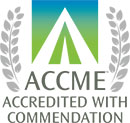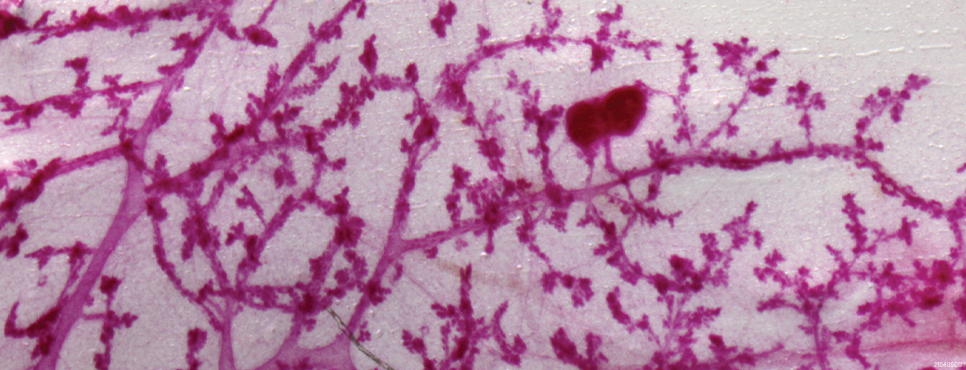Continuing Medical Education

Accreditation Statement
The American Association for Cancer Research (AACR) is accredited by the Accreditation Council for Continuing Medical Education (ACCME) to provide continuing medical education activities for physicians.
Credit Designation Statement
AACR has designated this live activity for a maximum of 15.00 AMA PRA Category 1 Credit(s)™. Physicians should only claim credit commensurate with the extent of their participation in the activity.
Credit certification for individual sessions may vary, dependent upon compliance with the ACCME Accreditation Criteria. The final number of credits may vary from the maximum number indicated above.
Claiming CME Credit
Physicians and other health care professionals seeking AMA PRA Category 1 Credit(s)TM for this live continuing medical education activity must complete the online CME Request for Credit Survey by Tuesday, January 3, 2022. Certificates will only be issued to those who complete the survey. Your CME certificate will be sent to you via email after the completion of the activity.

Successful completion of this CME activity, which includes participation in the evaluation component, enables the participant to earn up to 15.00 Medical Knowledge Maintenance of Certification (MOC) points in the American Board of Internal Medicine’s (ABIM) MOC program. Participants will earn MOC points equivalent to the amount of CME credits claimed for the activity. It is the CME activity provider’s responsibility to submit participant completion information to ACCME for the purpose of granting ABIM MOC credit.
To receive ABIM MOC, participants must request MOC in the CME Request for Credit Survey and complete all questions. Once these steps are completed, AACR will submit your completion information via the ACCME’s Program and Activity Reporting System for the purpose of granting MOC points.
Statement of Educational Need, Target Audience, and Learning Objectives
Cancer prevention and early detection using the population and high-risk approaches have had many successes, yet the full promise of reduction of cancer morbidity and mortality in the population have yet to be reached. Newer approaches that build on multidisciplinary interactions are required to bring cancer prevention and early detection to the next level of impact. This conference will provide a forum for reviewing and analyzing the evidence underlying the use of biological information and novel technologies for the purpose of improving prevention and early detection modalities. The conference will also identify gaps in our knowledge that need to be addressed and stimulate discussion of how to approach current barriers to progress in this field. These activities require cross-communication between a variety of disciplines. This requires not only a mutual understanding of the data from a variety of fields but also the development of a common language so that scientists and clinicians can use this new information to impact on population health. The conference will bring together researchers and clinicians from diverse backgrounds to focus on the subject of precision prevention and early detection of cancer.
This conference will therefore stimulate thinking about and discussion of how to apply current knowledge and technologies toward an improved prevention and early detection of cancer. Ample time will be provided for informal interactions and discussion among the participants in an effort to further these goals.
After participating in this CME activity, physicians should be able to:
- Assess therapeutic strategies that combine genomic research with precision medicine to improve risk assessment, and early detection of cancer.
- Provide the audience up to date knowledge on recent advances about the mechanistic development of human cancer.
- Evaluate how technology can be used to create a “precision” prevention approach to cancer prevention and early detection.
- Identify crucial problems to be addressed for additional progress to occur in this field.
- Provide a forum for interactions among researchers from the diverse backgrounds represented.
- Demonstrate how to apply the increasing knowledge through implementation and policy to prevent cancer mortality.
Disclosure Statement
It is the policy of the AACR that the information presented at AACR CME activities will be unbiased and based on scientific evidence. To help participants make judgments about the presence of bias, AACR will provide information that Scientific Program Committee members and speakers have disclosed all financial relationships they have with ineligible companies whose primary business is producing, marketing, selling, re-selling, or distributing healthcare products or services used by or on patients. All of the relevant financial relationships for these individuals have been mitigated.
Acknowledgment of Financial or Other Support
This activity is supported by Professional Educational Grants which will be disclosed at the activity.
Questions about CME?
Please read our frequently asked questions. If you still have questions, please contact the Office of CME at (215) 440-9300 or [email protected].
